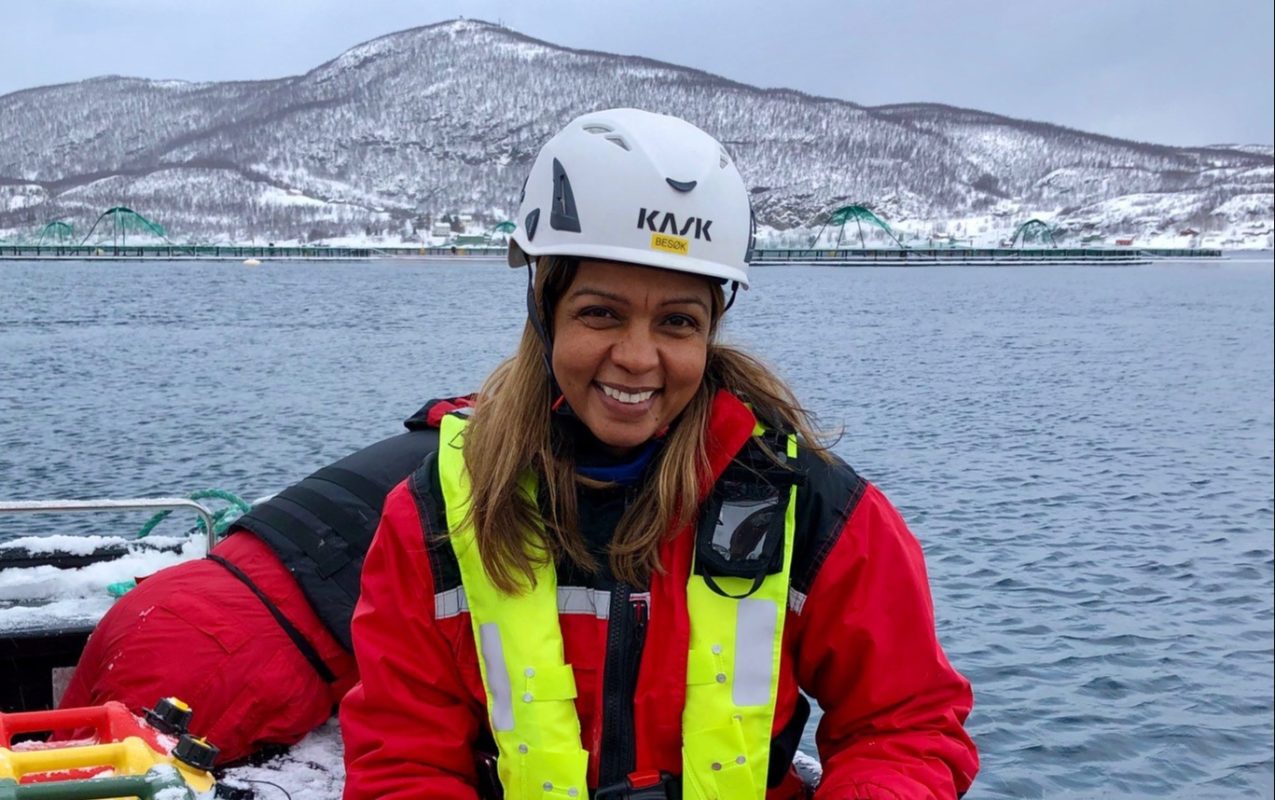photographer: Helge Hansen
HR LEADER: Sustainable leadership is the future
Kathleen Offman Mathisen is Executive Vice President for HR and Internal Communication in Grieg Seafood ASA. Prior to this, she has extensive experience from the international oil and gas industry. She has a great commitment to the HR profession and is a board member of HR Norway West. With almost 20 years of experience as an HR manager, she shares her experiences with FRONT Leadership.

Kathleen Offman Mathisen
photographer: Morten Wanvik
What is your top priority for HR going forward and how are you tackling this?
We have the spotlight on our annual employee survey, which is a global survey for all our employees in the different regions we operate in. Run globally for the fifth year in a row, the survey is the formal joint review of how our culture is evolving and whether our leadership is trust-based. Since our most important competitive advantage is our employees, we need to follow up with them specifically to gain insight into what we do well and what we need to improve. The feedback we receive enables us to set the right priorities and measures for the future, and to ensure that we actually carry out systematic improvement work. If we are to achieve innovation and create value for our owners and stakeholders, our employees must thrive. Engagement is important to us. That said, the most important thing we do is to follow up with our employees every single day. Everyday management can never be replaced by an annual survey.
As an HR manager, what are your main ambitions for development at your company?
That our employees should have the opportunity to learn something new and develop personally regardless of position and age. For employees, this means that we are introducing a lot of new technology, which requires training or that they must familiarize themselves with new subject areas. For managers, it means that they must be able to change their leadership in line with the new working life. Flexibility and working from home where some teams are hybrid can be challenging if you don't know how to organize your team and achieve good communication. We also use some of the results from the employee survey to specify measures for development and training.

What have you done to further develop your own skills?
I have just resumed my studies, which I had put on hold for a few years due to acute illness. I'm now in the process of completing an MBA in Leadership and Sustainability. I believe that it's important to stay updated and relevant as an HR manager and that the management profession will change in the future. More employees than before are demanding the meaning of the work we do and why we do what we do. This also means that managers must become even better at leading in a sustainable and ethical way.
What is the most important experience you have gained in the past year?
That crises are opportunities. Covid gave us a long-awaited and necessary technological boost we would never have received otherwise. It is always important in a crisis situation to try to think ahead, even if everything may seem rather dark at the time. The winners are those who prepare for the upturn in times of recession. I have also forced myself to prioritize hard after I was struck down by an acute illness two years ago, which fortunately went well.
Who impresses you and why?
I am most impressed by individuals who, in a personally demanding situation, manage to forgive or see the good in others who have put them in that demanding situation. How they manage to look up, even when you know they're struggling, and still get up in the morning with the ambition to make the world better, not worse. Forgiveness is something we rarely talk about when it comes to leadership, but it's an important topic when it comes to moving forward in life.
What is the "purpose" of leadership and what do you as a person put into it?
The ultimate purpose of leadership is to deliver results through others. I understand "purpose" as the reason why I do what I do. I work with people because it's the most exciting and also the most challenging thing you can do. The purpose of why I work in this particular company is that we produce food for a growing population - salmon production has the lowest carbon footprint in terms of animal protein. That makes sense to me, and it's important to know that you're doing something of value. We have to exercise our leadership in a sustainable way, so being part of a company that also values sustainability in everything they do is why I work where I work. I think it's important to understand and believe that I'm part of something bigger than myself. As a person, I truly believe that people have something good in them and that they often fail because they don't know better or they don't know what or how to do the right things.

